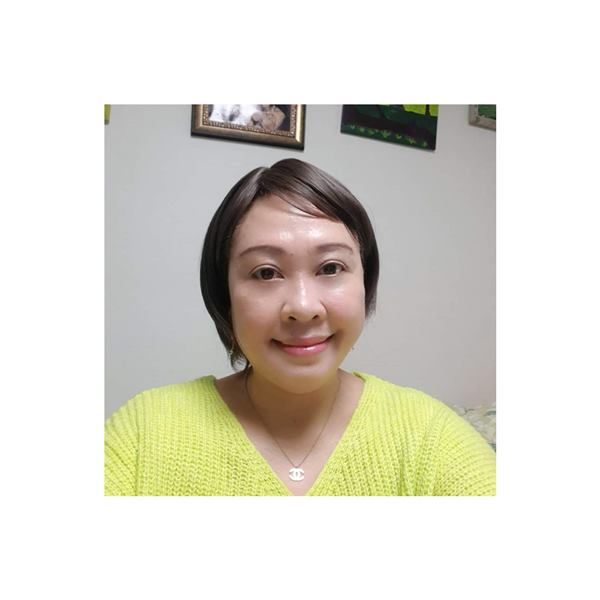Daily Busan
A conversation with Professor Arlene Feniza

Daily Busan interviewed Arlene Feniza, a professor at one of Busan’s universities who has lived in Busan for 22 years. She shared her life as an international resident and a single parent.
Q. Please introduce yourself to the ‘Daily Busan’ subscribers.
I am an enthusiastic and energetic English teacher with 17 years of experience, specializing in teaching both individuals and groups, including international students. I hold a TESOL Certification (April 2009) from the Asian EFL Journal in Busan and completed my master's degree at Youngsan University, which significantly enhanced my teaching skills and passion for education. My approach to teaching is student-centered, aiming to help students succeed in their chosen careers, which I consider my success as well. I am adventurous, constantly seeking new challenges, and dedicated to solving customer problems to maintain high levels of customer satisfaction. My strong interest in culture and language enables me to connect with people around the globe, and my cheerful and competitive nature helps me overcome any challenges I encounter. I am also willing to travel and embrace new opportunities.
Q. How long have you been living in Busan?
I witnessed significant changes in Busan over the past 22 years, especially since the 2002 World Cup. The changes in Busan, particularly in Haeundae and Centum City, reflect broader trends in urban development in South Korea. The city has embraced modernization while striving to maintain its cultural heritage. This transformation includes economic growth, urbanization and growth of tourism and culture. Busan has capitalized on its natural beauty and cultural assets to become a global tourist destination, hosting international events and festivals. I have witnessed the incredible growth and change in Busan over the past two decades. The city has evolved from a relatively quiet coastal town into a vibrant, global metropolis. This transformation is evident in the development of key areas like Haeundae and Centum City, which have seen the rise of modern infrastructure, luxury accommodations, and cultural attractions.
Q. What are the good parts of living in Busan?
Living in Busan offers numerous advantages, combining the benefits of urban life with natural beauty such as beaches and mountains and cultural richness. Especially, the city has several hot springs like Heosimcheong, one of Asia’s largest, offering relaxation and therapeutic benefits. Cultural and historical attractions like temples and traditional markets are also good. Also, Busan has convenient transportation.
Q. Could you share your life as a foreign professor and a single mother in Busan?
My day typically starts early. After preparing breakfast for my children, we have a quick meal together before heading out. The efficient public transportation system in Busan makes it easy to drop my child off at elementary school. The Korean government's support of schools and programs helps make this process smoother for children.
I work as a professor at one of Busan’s universities, where I teach group study sessions, helping students overcome their fear of the English language in my field of expertise. The university environment is vibrant, with a mix of local and international students. My classes are conducted in English, but I also incorporate some Korean to assist local students and improve my Korean language skills. Although there are many expectations, I try my best to meet them effectively.
Balancing work and parenthood can be challenging, but the supportive community helps me financially, especially since I have a low income. The government provided some assistance before. The private academy offers flexibility for my kids, keeping them engaged and learning. The university where I work provides a structured schedule and facilities, with working hours from 9 AM to 6 PM.
Q. Are there any difficulties in raising and educating multicultural children in Busan?
Raising and educating multicultural children in Busan can indeed be challenging but also incredibly rewarding.
If the child is fluent in Korean but the mom is not, they might face communication challenges at school and in social settings.
Also, adjusting to different cultural norms and practices can be challenging for multicultural children. Children might struggle with their cultural identity, feeling torn between their heritage and the local culture. Building friendships with local children might be difficult due to cultural and language differences. Unfortunately, multicultural children might face bullying or discrimination, which can impact their self-esteem and sense of belonging. Also, the education system and the support services may be difficult too.
For the rewards, multicultural children often develop a broader worldview and a deeper appreciation for diversity. Growing up in a bilingual or multilingual environment can enhance language skills and cognitive development. Their social skills, empathy and tolerance can be enhanced too. Also, they develop a diverse skill set that includes cultural competence, linguistic abilities and adaptability, which can be advantageous in future careers.
While raising and educating multicultural children in Busan comes with its challenges, it also offers unique and enriching experiences. By leveraging available resources, fostering cultural understanding and building strong support networks, you can help your child thrive in a multicultural environment. The difficulties faced can ultimately lead to the development of a well-rounded, resilient and culturally competent individual. I always told myself to fight to win the prize. I will survive.
<Today's Vocabulary - 오늘의 단어>
enthusiastic: 열정적인 specialize in: ~을 전문으로 하다 significantly: 상당히 enhance: 강화하다 adventurous: 모험심 있는 dedicated to: ~에 전념하는 maintain: 유지하다 competitive: 경쟁적인 embrace: 받아들이다 opportunity: 기회 witness: 목격하다 reflect: 반영하다 urban: 도시의 development: 개발 urbanization: 도시화 capitalize: 자본화하다 incredible: 대단한 growth: 성장 evlove: 진화하다 relatively: 상대적으로 vibrant: 생동감 있는 metropolis: 주요 도시 transformation: 변화 evident: 명백한 infrastructure: 사회기반시설 accommodation: 숙박시설 numerous: 상당한 hot spring: 온천 heading out: 나서다 expertise: 전문 지식 incorporate: 포함하다 supportive: 지지하는 assistance: 지원 flexibility: 유연성 multicultural: 다문화의 rewarding: 보람있는 adjust: 조정하다 heritage: 유산 bully: 괴롭히다 discrimination: 차별 impact: 영향 self-esteem: 자존감 broader: 더 넓은 appreciation: 감사 diversity: 다양성 bilingual: 2개국어 multilingual: 다개국어 cognitive: 인지적인 empathy: 공감 tolerance: 용인
Editor: Song Soomi
Copy Editors: Kim Miyoung, Anton J. Mapoy

